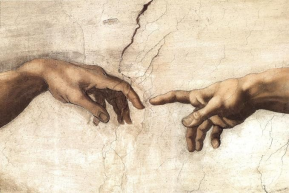 PMW 2024-027 by Kenneth L. Gentry, Jr., Th.D..
PMW 2024-027 by Kenneth L. Gentry, Jr., Th.D..
In his letter to the troubled Corinthian church, Paul lists three Christians virtues while exhorting them to a closer walk with Christ: faith, hope, and love (1 Cor. 13:13). This three-fold cord of holy values provides a strong bond of commitment for the Christian, and has tied the Church of Jesus Christ together throughout the ages.
Faith and love are not only beautiful threads knitting together the fabric of the Christian life, but are easily recognized as such. They weave a strong carpet for the Christian walk; they serve as dual strands tugging us forward in our holy calling. And though hope is certainly not a detached thread from the Christian garment, it has been snagged loose and at best is only partially visible to the eye of faith today.
Certainly all Christians are united in recognizing our ultimate, glorious resurrection hope in our heavenly home. We know that the present fallen order is not all that we may expect in our experience of God’s grace. The beatific vision in Scripture encourages us to keep a hopeful eye on heaven above even as we watch our steps in the earth below. And though eternal life in the presence of God is the ultimate hope of the Christian and the abiding consequence of the gospel, it does not exhaust the full significance of biblical hope. Continue reading →


 PMW 2024-027 by Kenneth L. Gentry, Jr., Th.D..
PMW 2024-027 by Kenneth L. Gentry, Jr., Th.D.. By Ken Gentry
By Ken Gentry
 PMW 2024-025 Kenneth L. Gentry, Jr., Th.D.
PMW 2024-025 Kenneth L. Gentry, Jr., Th.D. Once again I will offer a running overview of an important passage of Scripture. This two part series will present the creation of Adam, the planting of Eden, and the marriage of man.
Once again I will offer a running overview of an important passage of Scripture. This two part series will present the creation of Adam, the planting of Eden, and the marriage of man.

Recent comments